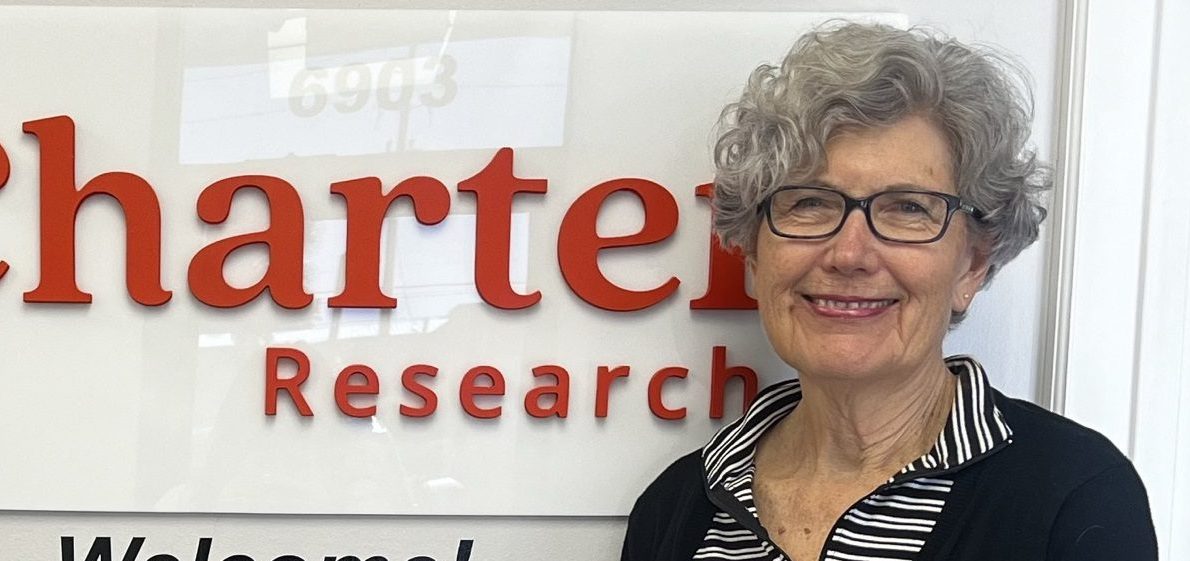Deltona Resident Joins Clinical Trial to Prevent Alzheimer’s
When her father was 76, he had Alzheimer’s. Now the same age as her father, she’s participating in a clinical trial that might help prevent the disease.
Whenever Deltona, FL resident Frances Porter, 76, has trouble recalling a name or misplacing one of her belongings, she worries dementia may be “hanging over her”—and she’s felt this way for decades. When her father was her age, he developed Alzheimer’s.
Now that she’s in her 70s, Porter is taking action to avoid this outcome. She sees participating in scientific research into Alzheimer’s as a way to make a difference, if not for herself then for future generations.
Porter enrolled in a clinical trial called the Phase 3 AHEAD trial, which is investigating whether Leqembi—an anti-amyloid drug fully approved by the FDA last July for treating the early stages of Alzheimer’s—could not just slow the disease for people who already have Alzheimer’s symptoms, but prevent the onset of the disease altogether.
Trial participants are cognitively healthy older people aged 55 to 80 who have amyloid plaque buildup—a telltale sign of Alzheimer’s disease—in their brains. This plaque can show up years or even decades before Alzheimer’s symptoms appear.
How Porter keeps her brain healthy
Because her father developed Alzheimer’s, Porter knew that she was at a higher risk. Having at least one parent with Alzheimer’s could increase the chances of developing Alzheimer’s by 70 percent.
For most of her life, Porter said that she has been conscious about eating healthy—lifestyle choices she knows can reduce other risk factors for the disease like high blood pressure or cholesterol. She also continues her active social life, participating in many women’s book clubs and volunteering.
“I’m a Guardian ad Litem for Seminole County,” Porter said. This means that she acts as an “advocate for the children that have been removed from their family, because of some kind of abuse or neglect.” Her work with children, she explained, brings her a lot of joy.
Even with her healthy lifestyle, Porter still knew that she was at risk of developing the disease that affected her father, so she decided to see if she was eligible for any clinical trials.
What Porter wants you to know about Alzheimer’s
Porter is adamant that the people who develop Alzheimer’s are not just their disease.
Even though her father changed throughout the disease, he still loved his family. Before the disease, Porter recalled that her father was seldom visibly affectionate.
“When he developed Alzheimer’s, he became physically affectionate which was nice,” she said. He also retained his wisdom—he remembered that Porter no longer lived in Georgia and would need to travel to see him.
Keeping his sense of humor, one day, her father asked if he could return with her. “That’s what old people do: They go with young people and tell them how to do something they already know how to do,” her father had said.
What it’s like to participate in the AHEAD trial
Porter signed up to see if she would be a fit for the AHEAD trial.
To determine her eligibility for the trial, she worked with trial administrators in a screening process that took about six months. This process included drawing blood to look for biomarkers and genetic testing, imaging, and cognitive testing. Trial administrators were looking to understand, through these tests, that she was still cognitively healthy but that she did have beta-amyloid plaques in her brain—a hallmark of Alzheimer’s disease.
At the end of the screening process, Porter learned she was eligible to join the trial. As a participant, she will receive an intravenous infusion every two weeks at the clinical trial center for 96 weeks and then infusions every four weeks for just over two years. But she won’t know if she received the drug, Leqembi, or the placebo, until the end of the trial. Researchers will study the plaques in her brain, her cognitive abilities, and other markers over these two years to understand what affects the infusion had. Then, they’ll look across all trial participants and compare the outcomes for the people who had the placebo, versus the people who had the drug, to understand how much a difference Leqembi might make in preventing the onset of Alzheimer’s disease.
What’s it like to participate in this scientific research process?
“I feel like we’re part of an important community,” Porter said. Her participation in the clinical trial has helped her come to accept that she has some of the underlying pathology of Alzheimer’s and that she might develop it in the future. “I’m surprised that being part of the trial has made that difference.”
